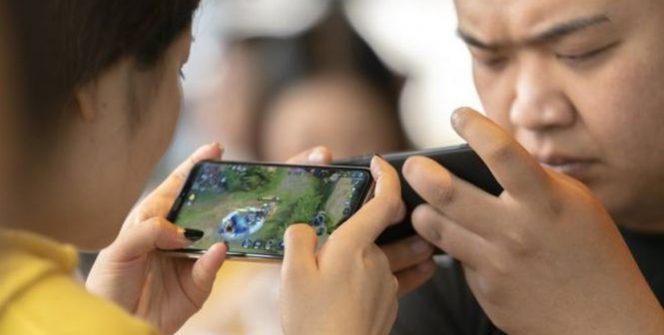China’s new set of restrictions don’t allow much time for players.
South China Morning Post reports The State Administration of Press and Publications (SAPP) is expanding the existing real-name identification policy to all platforms: when the users register, they need to do so with their real name, which will be checked in a database (which will be updated to avoid bypassing with fake ID numbers) to determine whether they are a minor or not.
Those who are determined to be under the age of 18 will not have much time to play: an average of 1.5 hours per day (it was previously three hours; those under 12 will have 1 hour, and those aged 12-18 will have 2 hours). Between 22:00 and 08:00, no playing is allowed under 18, and even the spending is limited in games. Players under the age of eight are prohibited from microtransactions (in-game spending), 8-16 can spend a maximum of 200 yuan (renminbi; about 29 USD) a month, while 16-18 can spend 400 yuan. Players determined to be younger than the age rating on a game will be restricted from playing entirely.
The real-name registration system was implemented in 2007, but Tencent and NetEase, two of the significant technology giants in China, have started recently to expand the restrictions from the PC to the mobile platforms as well. Tencent introduced an age-rating system with four categories: ages 6+, 12+. 16+. and 18+; children under 6 were not recommended to play games unsupervised. Until now, China has not had a game age rating system like in the US (ESRB) or Europe (PEGI). Niko Partners’ senior analyst, Daniel Ahmad confirmed on Twitter that it’s not yet clear if this age rating system that will be used under the new regulations, but according to Niko Partners, it is „the most robust age rating system in China to date and more than 50 games have been rated using this system.” Loot boxes, as well as sexual and violent content, will also disappear. We’ll see about that.
„One of the points notes that local regulators will work with companies to enforce these regulations within a certain timeframe, which…is currently undetermined. But these are very much final in terms of overall policy and will be implemented across all online games,” Ahmad says. He also projects that these changes will not have a big impact on the Chinese industry, as only 20% of Internet users in China are aged under 19. Instead, he believes that other regulations (including the number of game approvals in China per year – a license is mandatory to be officially on the Chinese market) will have more of an impact. „The implementation of these systems across both PC and mobile games is an inevitable development and an important step for China’s games industry, allowing for games to target different age demographics and become more diversified. Demand from gamers continues to remain strong in 2019 with key titles continuing to drive growth,” he added.
The publishers will be required to work with parents, schools, minors, and other groups to educate children on healthy gaming behaviours. For example, they can create educational programs on playing games without becoming addicted, campaigns, or parental control applications.
And why is all this happening? Xi Jinping, the paramount leader of China, stated that the children’s eyesight needs to be improved, and with these limitations, he wants to achieve that fewer kids should be wearing glasses.
Source: Gamesindustry, BBC
Please support our page theGeek.games on Patreon, so we can continue to write you the latest gaming, movie and tech news and reviews as an independent magazine.
Become a Patron!
















Leave a Reply